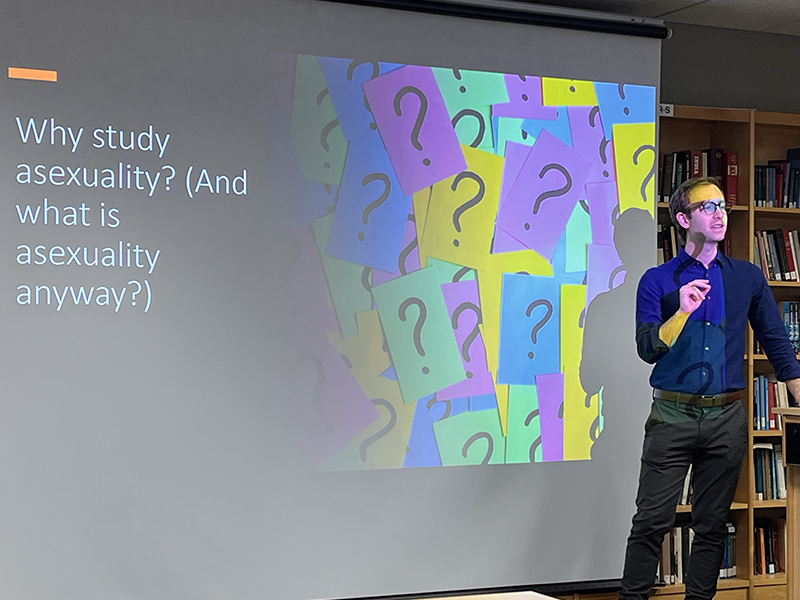Murray Scholar delivers second talk about borderlands of sexuality
April 12, 2024 - Beth Brauer
James Madison College’s 2023-24 Murray Scholar in Residence Canton Winer was on campus last week for his second and final visit. Winer, who is an assistant professor at Northern Illinois University, titled his April 4th public talk “A Very Queer Hetero: Exploring the Sexual Borderlands of Asexuality.”
During his talk, Winer discussed research from a larger project. For the purposes of this talk, he focused on his findings and theoretical implications from interviews with 26 individuals who identified on the asexuality spectrum and as heterosexual, heteroromantic or straight, thus positioning individuals in a unique space known as a sexual borderland between queerness and heterosexuality.
“Prior to the talk, I’d never really heard of the Borderlands theory, although the themes were familiar from my own experiences,” said Brenna Jeffs, an MSU alumna and employee working in the Department of Entomology.
“It was exciting to see that acknowledged and discussed academically as it relates to the asexual experience. There’s definitely a feeling of being part of two worlds as an asexual but not aromantic person.”
Following his talk, Winer stayed to chat with members of the audience who expressed their appreciation in having the opportunity to chat with a scholar focusing on the experiences of people who identify as asexual.
Winer also visited with faculty and graduate students during a hybrid event with the Consortium for Sexual and Gender Minority Health.
“I’m incredibly grateful for my experience as this year’s Murray Scholar,” said Winer.
“Both of my visits to MSU and JMC left me feeling energized to push forward some new threads in my research. It’s also thrilling to see so many asexual people come to my talks and share how useful they find my research. I feel fortunate knowing that my work matters to the community I study, who often don’t see themselves represented in research.”
This story was originally published April 12, 2024 but was updated on April 17, 2024.

